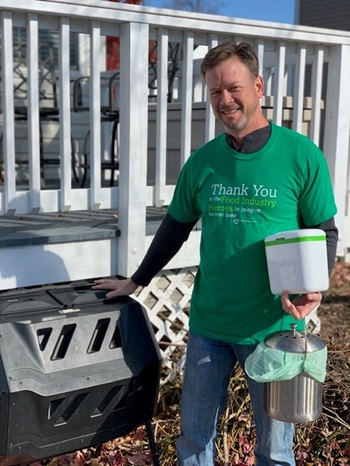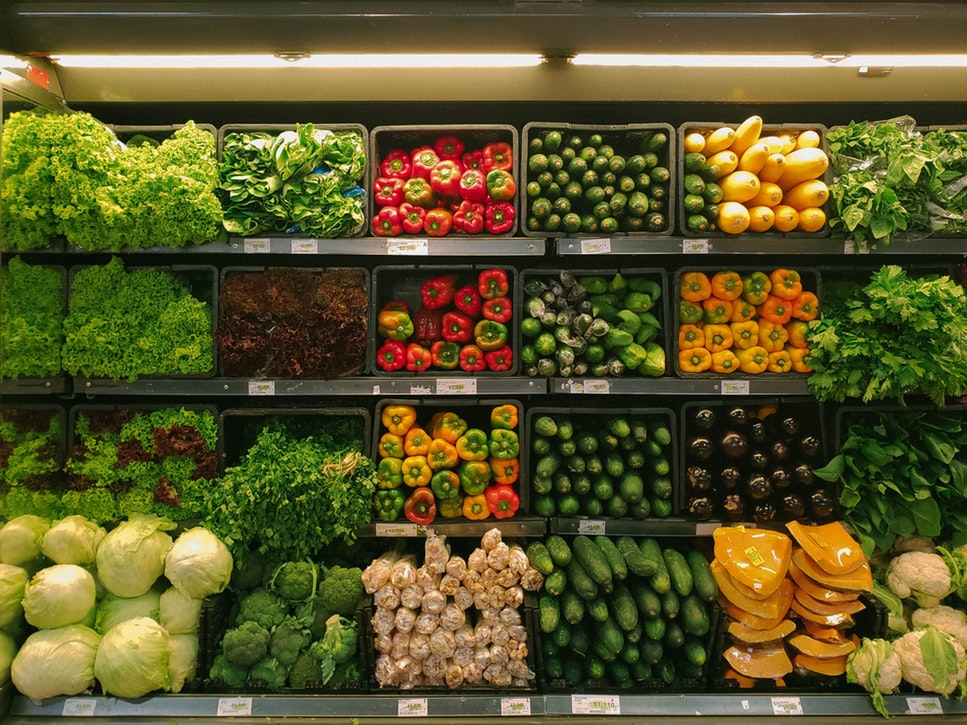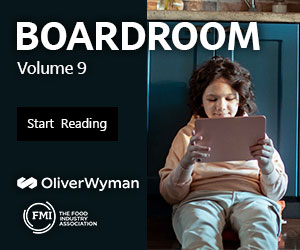By Dan Ratner, Senior Director, Member Services, FMI

My Year of Composting
Last year, I put a kitchen compost bin on my wish list for the holidays. I was surprised and elated to unwrap it on Christmas morning and have used it every day since. For Father’s Day this year, I got the gift of a large tumbling compost bin for the back yard and had it assembled and in operation the next day. I’ve become fascinated with the idea of taking food waste that would’ve been trapped in plastic bags for decades or even centuries in a landfill and helping it return to the earth to feed the growth of plants and sequester carbon dioxide in the soil that helps draw down greenhouse gases and reverse climate change.
What amazed me was how well my wife and two daughters embraced a new culture of diverting food waste within our kitchen. They liked learning what is compostable and what isn’t. Every day, I witness them sort through their food waste to rescue compostable items. They grabbed a countertop compost bin off the grocery store shelf on a recent shopping trip and said, “Let’s get this for Grandma’s kitchen.” Although they are not much into the organisms that help the composting process like worms and maggots, they like the smell of the finished compost and how it has helped our small vegetable garden grow well.
Returning inedible food scraps back to Mother Earth throughout the year has been the ultimate re-gifting. We also started wondering what happens to all the unsold and expired food that isn’t consumed, especially now that the Thanksgiving holiday is behind us.
Let’s Get Messy
As a food industry professional, I took the opportunity to review a report I had not yet read because it was released in February 2020, right before the COVID-19 crisis began. Titled Messy But Worth It! Lessons Learned from Fighting Food Waste, it was developed by the Food Waste Reduction Alliance (an organization of which FMI is a founding member.)
Five key themes emerged from the study:
- Forge an internal food waste prevention culture;
- Research local infrastructure;
- Recover and redistribute surplus food to feed people;
- Measure your current status or it won’t get managed; and,
- Consider composting.
Although the five key themes are directed toward corporations and organizations, I found it very useful in helping reduce food waste within our single-family household. Here’s how my family applied the five themes in our own lives:
- My family has worked hard to keep to our shopping list and only buy what food we will eat before its expiration date.
- Our county just implemented a yard waste/compostable waste pickup once a week and I attended an open house at the recycling center earlier this year that shared information on what happens to the collected organic waste.
- Throughout the pandemic, our school system provided food pickups for families of students. They encouraged all families to participate, and many in the community would help distribute some of the non-perishables to those that needed it. There were even social media groups formed to help get food into the hands of those facing food insecurity.
- This may not match up with the efforts on the corporate level, but within the household we are marking food containers with permanent markers with the date we opened it for the first time and noting how long it takes to finish the item or reach the expiration date.
- I’ve embraced composting, and my family has bonded over the change we are making from the ground up.
I hope you’ll take the opportunity to review the report, bring it to the attention of your company’s leadership and consider applying the tips and learnings to your company’s culture. And if you want to chat about composting, shoot me a note at dratner@fmi.org.


 Industry Topics address your specific area of expertise with resources, reports, events and more.
Industry Topics address your specific area of expertise with resources, reports, events and more.
 Our Research covers consumer behavior and retail operation benchmarks so you can make informed business decisions.
Our Research covers consumer behavior and retail operation benchmarks so you can make informed business decisions.
 Events and Education including online and in-person help you advance your food retail career.
Events and Education including online and in-person help you advance your food retail career.
 Food Safety training, resources and guidance that help you create a company food safety culture.
Food Safety training, resources and guidance that help you create a company food safety culture.
 Government Affairs work — federal and state — on the latest food industry policy, regulatory and legislative issues.
Government Affairs work — federal and state — on the latest food industry policy, regulatory and legislative issues.
 Get Involved. From industry awards to newsletters and committees, these resources help you take advantage of your membership.
Get Involved. From industry awards to newsletters and committees, these resources help you take advantage of your membership.
 Best practices, guidance documents, infographics, signage and more for the food industry on the COVID-19 pandemic.
Best practices, guidance documents, infographics, signage and more for the food industry on the COVID-19 pandemic.
